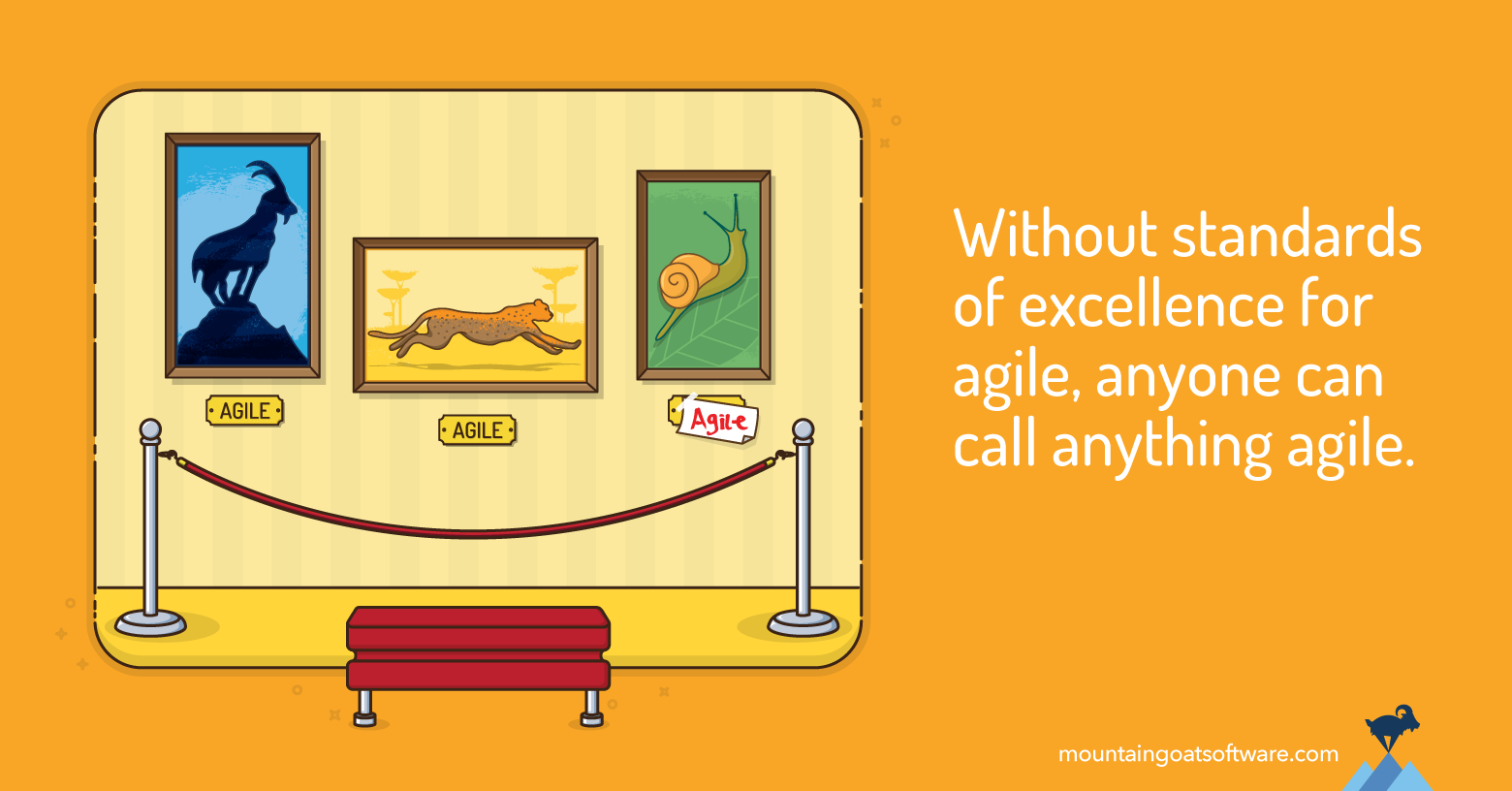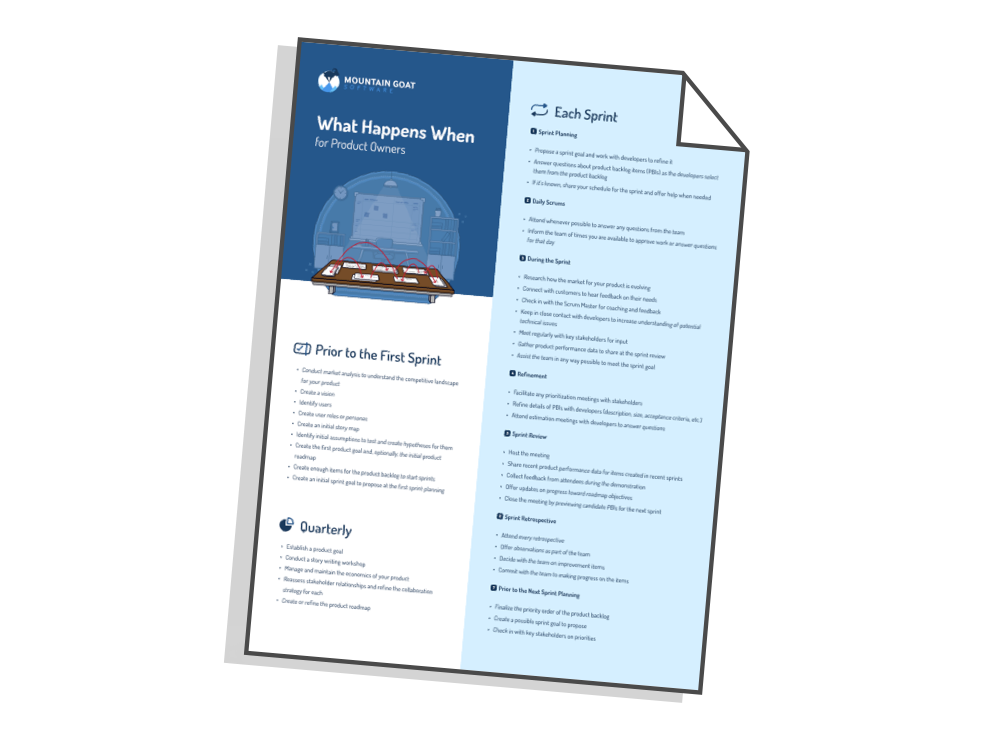I recently watched a video titled, "Why Is Modern Art So Bad?"
One of points of the video was that for centuries, art improved because artists demanded of themselves that they meet the highest standards of excellence.
The video claimed that this aspiration in art was eventually pushed out by the claim that "beauty is in the eye of the beholder." All art then became personal expression and essentially anything could be art.
And we've probably all been to museums and seen--or at least heard of--exhibits that left us wondering, "How is that art?"
Without standards of excellence in art, anything can be art.
Agile without Standards
And the same applies to agile. Without standards of excellence for agile, anyone can call anything agile.
I encounter this today in talking to companies that are agile because the boss has declared them agile. They don't deliver frequently. They don't iterate towards solutions. They don't seek continuous improvement. Teams are not empowered and self-organizing. But they must be agile because someone has slapped that label on their process.
Worse, we all see this today in heavyweight methodologies that don't resemble the agile described in the Agile Manifesto. But they must be agile because it's right there in the name of the process.
Many of us, as experienced agilists, can recognize what is truly agile when we see it. Yet agile is hard to define. It's more than just the four value statements or 12 principles of the Agile Manifesto. Or is it less than those?
Last update: June 24th, 2024









